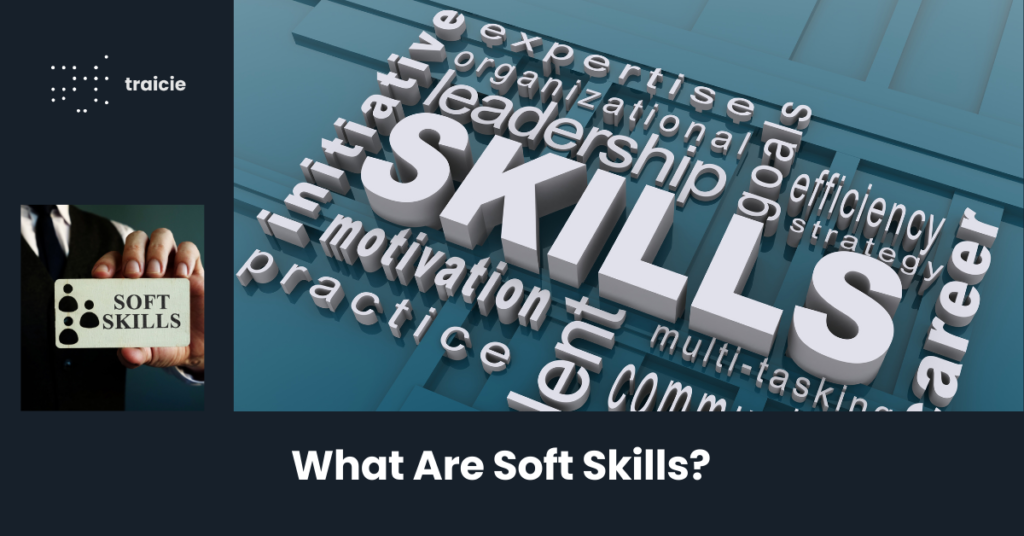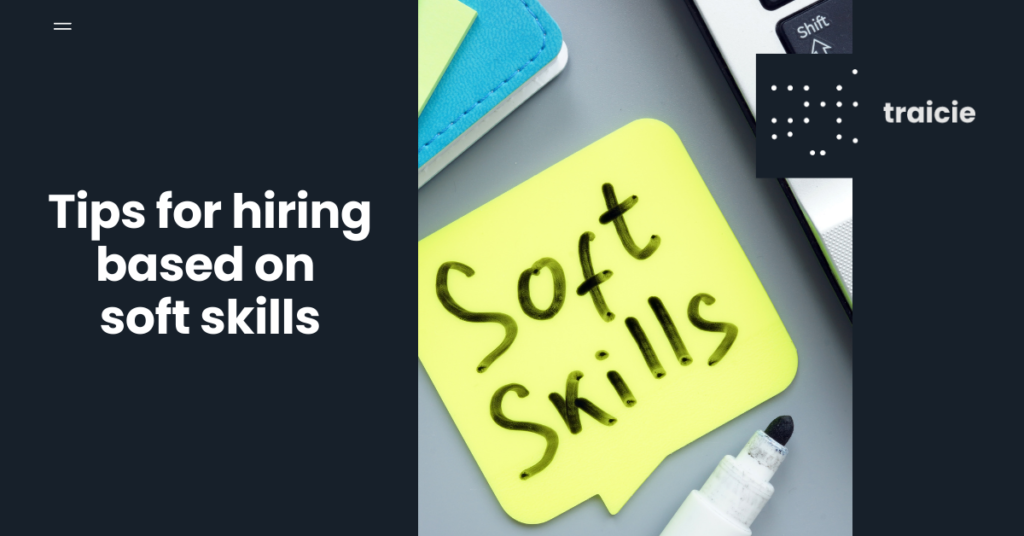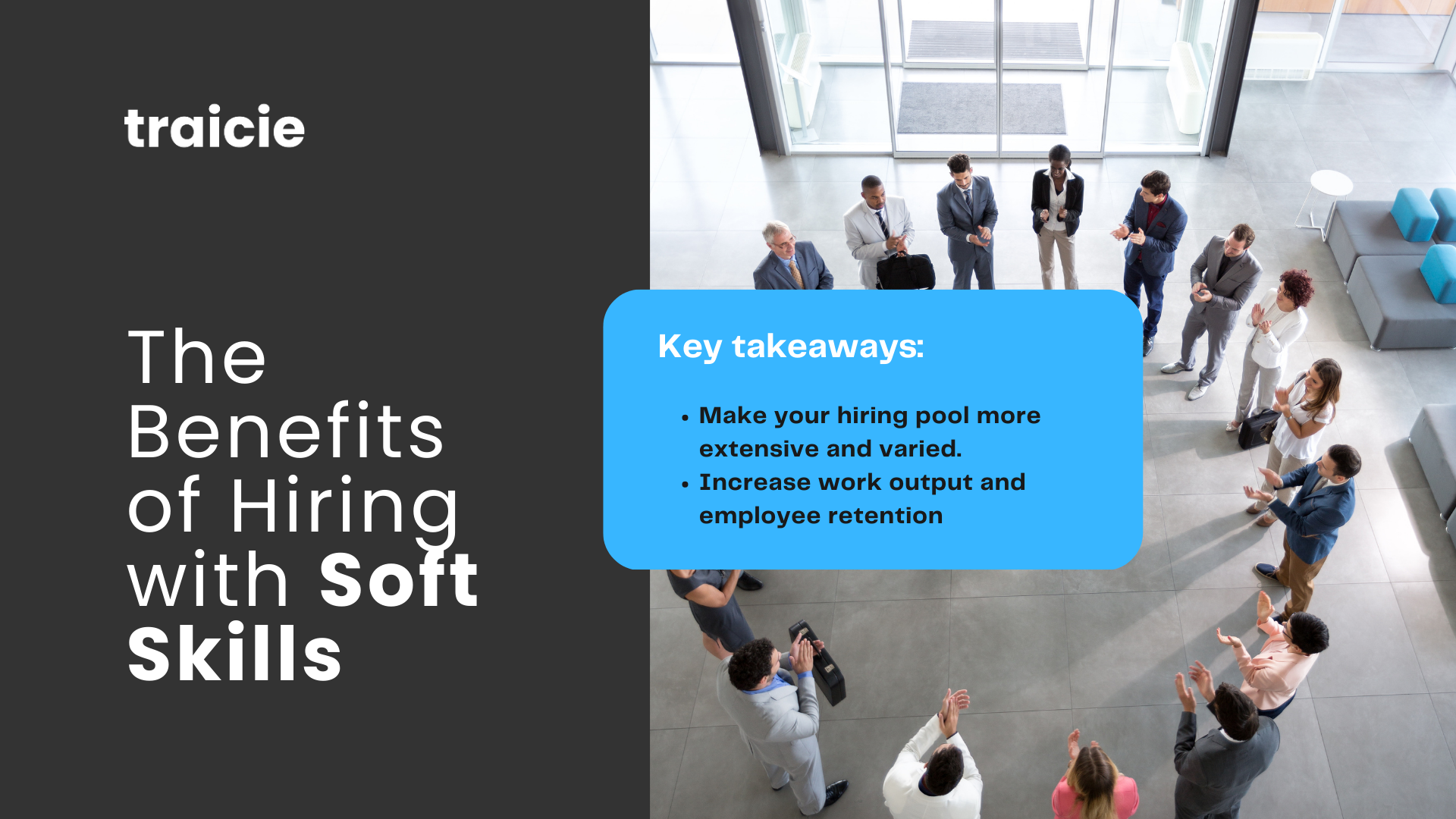The skills gap is a global issue impacting the hiring strategy of thousands of organizations. This phenomenon makes it extremely difficult to find qualified candidates. The situation where you, as an employer, needed to choose between hundreds of candidates that met your hard qualifications is long gone.
Today, it happens more often that, due to this “war for talent”, you don’t find enough candidates that fit your hard criteria. You have to broaden your search and look for potential, candidates with the right soft skills.
This is where looking at soft skills can help you make the right decision. To provide you with a concrete example, when looking for a project manager, you might want a person that quickly responds, is deadline sensitive and easily takes decisions. When looking for a developer, however, you might prefer a more analytical person that is stress-resistant and takes on a more supportive role.
This recruiting tactic has emerged during the recent “war for talent”. Here’s what you need to know about hiring based on soft skills!
What Are Soft Skills?

When it comes to hiring, there is a lot of focus on hard skills. These are the measurable and specific skills required to do a job. However, employers should also pay attention to soft skills.
Soft skills are the personal attributes and traits that influence a person’s behaviour at work and that person’s natural potential to do specific tasks well. Every job and every company culture requires a different set of soft skills.
| >>> Read more: Culture-based Recruiting: Why is it the best approach?
Hard skills can be quantified and divided into different degrees. You can learn advanced mathematics or writing skills and improve your code. Soft skills can be taught to a certain extent but depend more on a person’s aptitude, their natural potential.
These days many soft skills are used more as a buzzword than as sound requirements. Read a vacancy, and in most cases, the following soft skills will immediately jump out; a team player, flexible, stress-resistant, ambitious and solution-oriented. But does every one of these vacancies require these soft skills? Do these recruiters or their hiring managers think about the skills needed to perform successfully, or have they become empty words?
A deeper understanding of these soft skills:
Being a Team Player
You’ve been working in a team and have able to play well with others since your first day of preschool or daycare, even if you didn’t know it. When you fought over blocks or tried to figure out how to play a game you made up, you were learning how to work together for the rest of your life.
Whether you’re an individual contributor or a person in charge of other people, you have to work with others in your company in meetings, brainstorming sessions and cross-functional projects. Team harmony depends on numerous aspect such everyone on the team’s positive, can-do attitude, openness to new ideas and treating each other with respect.
Everyone needs to work with other people. Does that make this a soft skill required for your vacancy? Instead, think about the actual tasks that a person will have to fulfil. Will the employee work close to others for the entire project, where every tiny detail of the project needs to be discussed? Or, will the employee work in a team in which everyone has their responsibility, and everyone works on their own part to contribute to the end product? In this first case, you might need someone “team-oriented”, while in the second case, you might look for someone more “independent”.
Flexible
Flexibility is a trait often mentioned in vacancy descriptions. Adaptability to a constantly changing work environment seems to be an absolute must in every work context. Again it is advisable to have a closer look at the circumstances in which the job will be performed. Is your company going through some significant structural changes? Is the industry in which your company finds itself in constant flux? Does the company’s direction change often? Then, indeed, you need a person that easily adapts his vision and opinions to a changing reality.
More often, you will need a balanced employee. An employee who doesn’t only adapt to his environment easily, but also knows how to stand his or her ground, when necessary. However, sometimes your company will need a steadfast person who does not change his opinion when pressured. Then you might want to look in the opposite direction and look for a more conservative employee.
Stress resistant
Another soft skill that is currently over-used in job requirements is the soft skill: stress-resistant. Every vacancy text boasts the need for a stress-resistant person to take on the job. Often this soft skill is overgeneralised and a filler for the soft skills section. Here it is essential to know that “stress-resistant” also has an opposing pole being “deadline-sensitive”.
To explain this with some real-life examples. Stress-resistant people thrive in environments with a lot of pressure, since they are not affected by it. A developer that gets too many tickets thrown at his head knows he or she can only do a certain amount of work and keep working at a steady pace, less occupied with the approaching deadline. Or a consultant working on multiple projects with a sudden influx of tasks that needed to be done yesterday will have to prioritize.
| >>> You might be interested in Free Personality Survey for Career to pinpoint what makes you unique.
A “deadline-sensitive” person, however, is more occupied with meeting those deadlines. This employee will experience the pressure of an approaching deadline and will encourage himself and others to reach that deadline. A good example would be a project manager, working on a project with multiple facets. Each part has to be done in time for the other components in the machine to function well. Otherwise, the project might get delayed.
Ambition
An ambitious employee, as opposed to a stable employee, prefers constant growth in his or her tasks and responsibilities. Skills, talents and intelligence are all things you can grow and get better at. They are excellent employees for jobs with some growth perspective. This type of employee is happy as long as he or she can grow.
The ‘stable‘ soft skill, however, refers to the preference for having equal tasks over a more extended period. People who lean toward this soft skill will be happier in the same job longer.
Solution-oriented
Finally, it is time to address the difference between the soft skills: “solution-oriented” and “analytical”. Both are sides of the same coin and mainly refer to the way an employee might tackle a particular task or issue. An analytical person might take his or her time and first consider the facts and chronological processes. A solution-oriented person, on the other hand, likes to act fast and thinks in terms of immediate solutions.
The Importance of Soft Skills
When it comes to hiring, many employers focus primarily on technical skills. However, soft skills are just as critical as hard skills when predicting job success. Soft skills are personal attributes that predict a person’s suitability for a specific role within your company culture. They include communication skills, how a person might behave as a team member or a manager and more.
Soft skills can help you build a positive culture. Employing people with the right soft skills that complement each other builds a strong team.
The Benefits of Hiring with Soft Skills
When it comes to hiring, many employers focus on hard skills. However, soft skills are just as critical. Here are some of the benefits of hiring based on soft skills:
Make your hiring pool more extensive and varied
Hiring for soft skills has more benefits than you might expect. “Happier employees and better workflow”. If you’re not focusing on credentials, hiring for soft skills lets you expand and diversify your hiring pipeline.
The Harvard Business review says that, companies with solid talent pipelines pay attention to “potential, not credentials.” For example, focusing on technical skills, which only last a couple of years, is not as helpful as focusing on soft skills, which can last a lifetime. Notably, C-level employers valued soft skills more than hard skills.
traicie helps recruiters look further than an applicant’s hard skills. Learn how traicie can help you broaden your talent pool
Increase work output and employee retention
Researchers at Harvard University, the University of Michigan and Boston University did an open study. They concluded that focusing on soft skills increases productivity and retention by 20%, giving a 285 percent return on investment. Any CFO would be happy to hear that.
It has been proven that companies with a strong company culture, that hire people who fit this culture have a higher retention rate. Employees that fit your company culture, feel at ease and stimulated. Naturally, they tend to stay longer.
Make sure customers are happy and have a good experience
Naturally, when filling customer support vacancies. Focus on the applicant’s soft skills to ensure an excellent customer experience. The most important customer support soft skills are; responsiveness, clear communication, solution-orientedness and a person-oriented mindset.
| >>> Learn more about: Employee Onboarding Process: 7 Essential Tips Checklist
It makes sense that sales go up when customers have better experiences. Forrester recently found that companies that focused on customer experience grew their revenue 1.4 times faster and increased the lifetime value of their customers by 1.8 times more than companies that didn’t focus on customer experience.
Give a boost to your customer service fleet by hiring the best employees and get started with traicie
Ease upskilling
Finally, it’s harder to teach soft skills than it is to train hard skills. Why are soft skills so hard to learn? One reason is that, unlike hard skills, soft skills are based on who you are. For example, someone’s life stories may have taught them how to be empathetic, not schools.
Soft skills are tied to a person’s personality, they can improve over time but take a lot of energy. Hiring people with the right soft skills and potential and training them for the job, is more efficient. For example, an analytical person will quickly learn hard skills such as excel and accounting.
Tips for hiring based on soft skills

If you’re looking to hire based on soft skills, the first step is to identify which skills are most important for the role you’re looking to fill. Once you’ve identified the most critical skills for the position, you can start looking for them in candidates. (When it comes to hiring, many employers focus on finding candidates with the hard skills required for the job. However, soft skills are just as critical as hard skills when it comes to determining whether or not a candidate will be successful in a role.)
Here are some tips for identifying soft skills in candidates:
- Listen closely during interviews – pay attention to what candidates say and how they say it. Do they effectively communicate their thoughts and ideas?
- Ask behavioural questions – these types of questions can help you understand how candidates have handled situations in the past, indicating how they’ll handle similar situations in the future. When interviewing candidates, ask questions that will give you some insight into their soft skills.
- Look for evidence of soft skills during the interview process. Pay attention to how candidates communicate and interact with you and other members of your team. Do they seem like they would be easy to work with? Are they able to effectively communicate their qualifications?
- Give candidates a test – if you’re still unsure about a candidate’s soft skills after the interview, you can give them a test or task requiring them to use those skills. For example, if you’re looking for good communicators, you could have them give a presentation or lead a discussion. Personality assessments can also help assess a candidate’s soft skills.
- Many recruiters report that applicants are not motivated anymore to take personality tests for every job they apply to. Additionally, personality tests are influenced by people’s ability to answer as expected, instead of applying truthfully. traicie can help you avoid these common issues with personality tests by eliminating their need altogether.
Conclusion
Soft skills are increasingly important in the modern workplace, but they can be tough to assess during the hiring process. Combining interviews and personality tools (such as personality assessments or automated soft skill screening), you can better understand a candidate’s soft skills and whether they’ll be a good fit for your company.
Do you know that traicie’s tools can Leverage your Recruitment Automation by AI in strategic, operational value in recruiting process:
- Cost of a job board- Reduce annual spending on job boards
- Cost of HR tools – Reduce the cost of surveys and assessment tools
- Recruitment costs – Reduce selection costs
- Internal mobility – Fill more skilled jobs with internal staff
- Time to hire – Reduce the number of days a role goes unfilled
- Salary costs – Reduce overall salary costs
- Attrition – Reduce the rate of turnover
- Recruitment cost – Reduce the general recruitment cost
